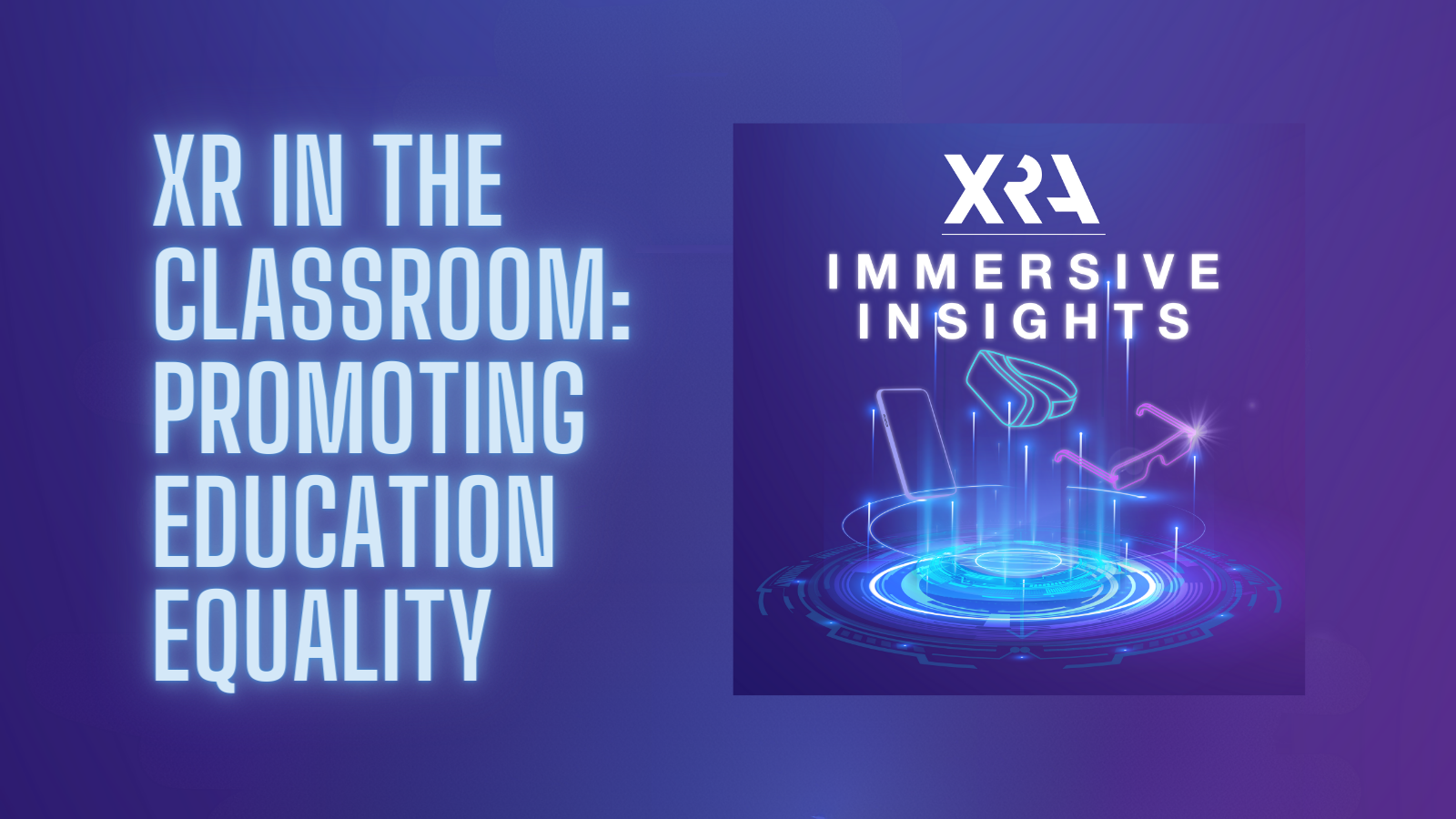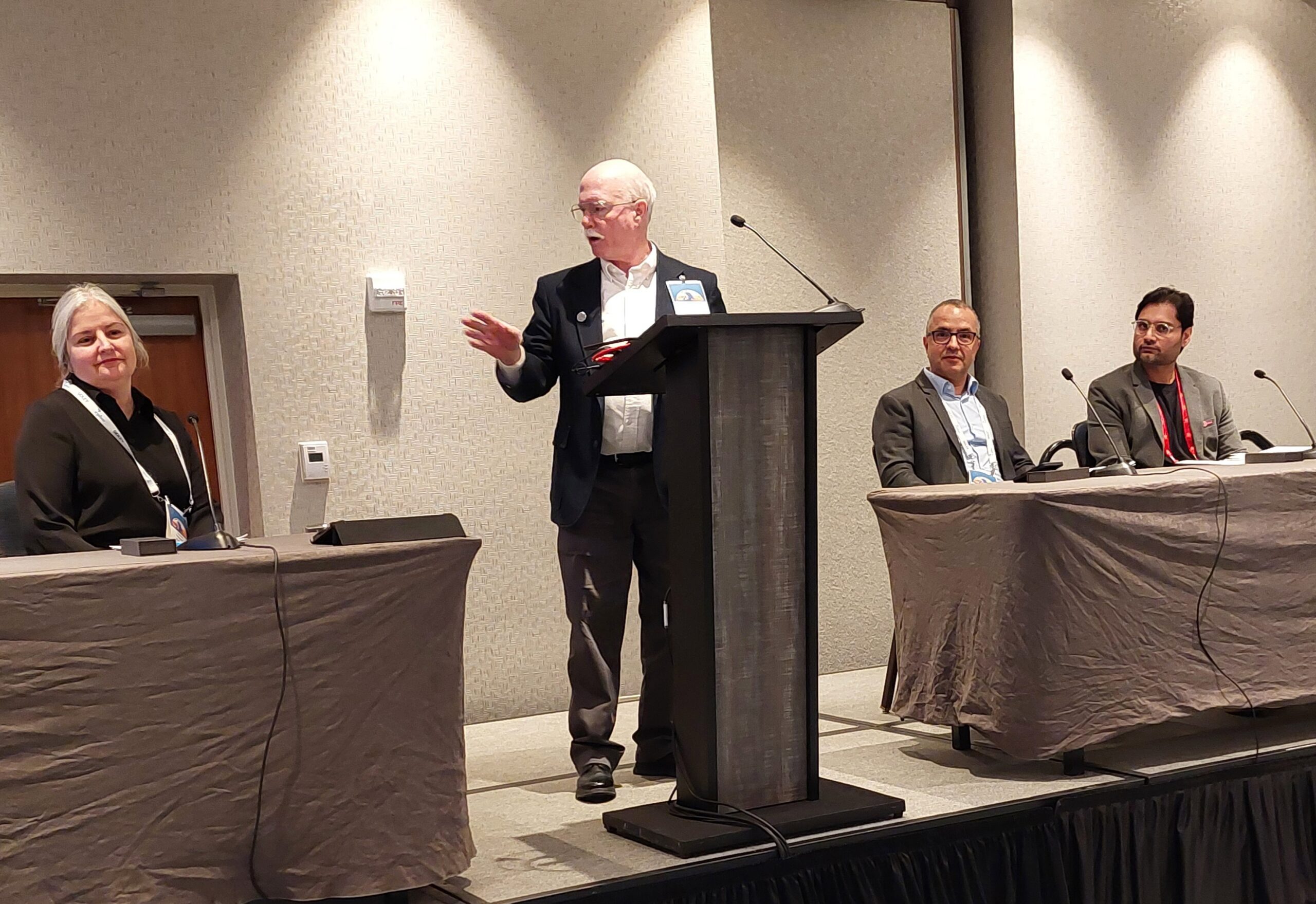TUNE INTO THE FINAL EPISODE OF “IMMERSIVE INSIGHTS: XR IN THE CLASSROOM”

Washington, D.C. – In the final episode of XRA’s education-focused mini-series, Immersive Insights: XR in the Classroom, Promoting Education Equality, host Stephanie Montgomery, XRA’s Senior Vice President of Research and Best Practices, is joined by Joseph South, Chief Innovation Officer at the International Society for Technology in Education, Kaylee Brown, Manager of Innovation Development at Pearson, and Paul Delsignore, Technology Manager of Strategic Initiatives at Pearson. Their conversation explores the benefits of using XR in education from the lens of accessibility and inclusion, how XR can help to reduce education inequality, and dives into the ways in which XR can contribute to a unique education for all learners.
When discussing educational opportunities for neurodivergent learners and students, Brown highlights the ways in which XR provides real-life simulations that students with disabilities may not have the chance to experience.
“I think XR can be a really powerful tool for both folks with disabilities as well as neurodivergent learners, because even outside of what you think of as traditional education, immersive technologies can actually help those with physical disabilities experience things they may not have been able to experience otherwise,” said Brown. “There are none of the same limits that exist in the real world when you’re talking about being in an immersive world, in VR or in MR. You can experience things in a much similar way as it would be in real life.”
To build on Brown’s points regarding learning experiences for students with disabilities, Delsignore emphasizes the ways in which XR can level the playing field and provide endless opportunities for all students.
“So in many respects, when you think about it as it applies to learning and education, we know that learning is not all cognitive when you combine knowledge and experience to get the optimal form of learning,” said Delsignore. “So, if you think about a lot of disabilities that people may have, in terms of inequalities, XR has that potential to really level that playing field.”
While discussing reducing education inequality, South mentions the importance of thinking through what priorities are needed to ensure that there’s proper support in our school systems for students of all backgrounds.
“I think at the very basic level, there’s a question of accessibility and affordability. We don’t have a great track record of getting new powerful technologies into the hands of those who are furthest from opportunity early on. Oftentimes they’re the last ones to have the opportunity to become familiar, or master that technology, and since they’re already disadvantaged, it puts them even further behind,” said South. “So I think we need to be really creative about that and ask ourselves, if we’re going to be rolling out these technologies, how do we ensure that the students who are furthest from opportunity are some of the first who get to experience the technology?”
Listeners can tune into Immersive Insights on Apple Podcasts, Google Podcasts, Spotify, and TuneIn to learn more about the tools XR provides to promote accessibility and inclusion and reduce education inequality.


